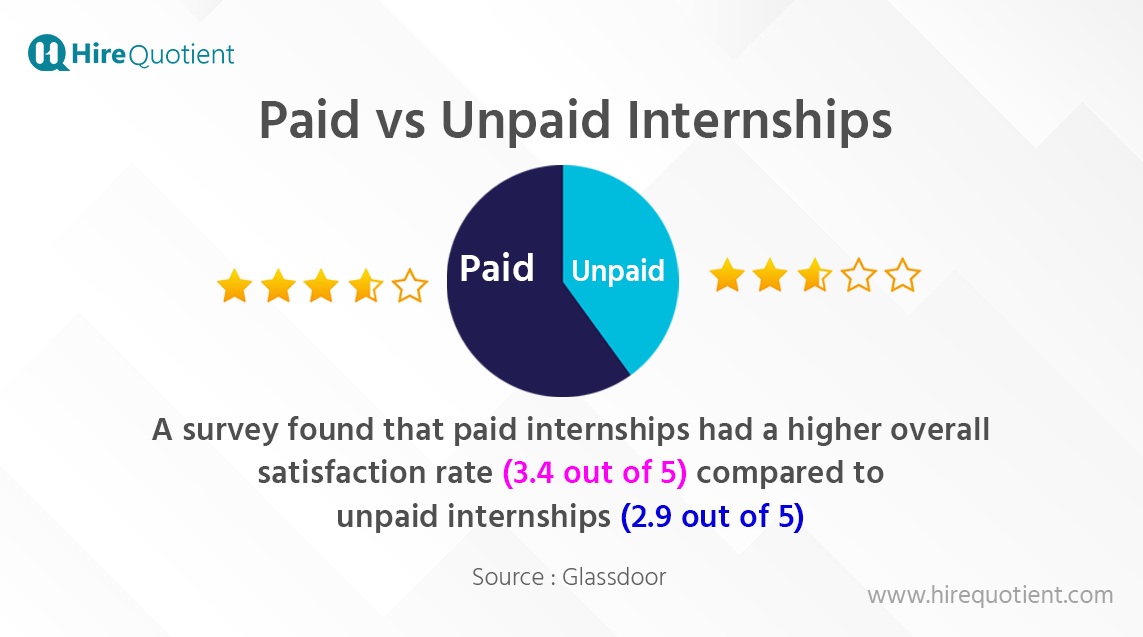Do Interns Get Paid?
Published on June 30th, 2023
The question of whether interns should be paid has been a longstanding debate in the professional world. Internships play a crucial role in providing valuable work experience and skills to students and young professionals. However, concerns have been raised about the ethics and fairness of unpaid internships. This article aims to explore both sides of the argument, providing insights for recruiters and candidates alike.
The Case for Paid Internships
- Fair Compensation: One of the main arguments in favor of paid internships is the principle of fair compensation. Interns contribute their time, skills, and efforts to the organization, and it is only fair to remunerate them accordingly.
- Improved Candidate Pool: Offering paid internships attracts a wider and more diverse pool of candidates. This ensures that the organization can tap into a broader talent pool and access candidates with different backgrounds and perspectives.
- Higher Commitment and Productivity: Paid interns are more likely to be committed and motivated to perform well during their internship. This commitment can lead to higher productivity and a better overall experience for both the intern and the organization.
- Compliance with Labor Laws: In many countries, labor laws require companies to pay interns if the internship provides substantial value to the organization. Non-compliance with these laws can lead to legal consequences and damage the organization's reputation.
The Case for Unpaid Internships
- Learning Experience: Some argue that internships are primarily learning experiences, and compensation should not be the main focus. Unpaid internships might be more feasible for small businesses or startups with limited resources.
- Flexibility: Unpaid internships often offer more flexibility in terms of the duration and expectations. This allows interns to balance their academic commitments and work experience.
- Exposure and Networking: Unpaid internships can offer interns valuable exposure to their chosen industry and the opportunity to build a professional network, which can be just as valuable as monetary compensation.
- Non-Profit and Charitable Organizations: Unpaid internships are more common in non-profit and charitable organizations, where financial resources are often directed towards fulfilling the organization's mission.
Impact on Recruiters
- Attracting Top Talent: Paid internships are likely to attract a larger and more competitive pool of candidates. Recruiters can tap into a diverse talent pool and secure interns who are genuinely interested in the role.
- Retention and Conversion: Offering a stipend or salary to interns increases the chances of retaining top performers and converting them into full-time employees after graduation.
Impact on Candidates
- Financial Security: Paid internships provide candidates with much-needed financial security during their internship period, allowing them to cover living expenses and possibly reduce reliance on student loans.
- Valuing Their Work: Compensation shows that the organization values the intern's contributions and recognizes the efforts they put into their work.
Conclusion
The debate over paid vs. unpaid internships is complex, with valid arguments on both sides. While paid internships provide fair compensation, attract top talent, and enhance productivity, unpaid internships offer flexibility, exposure, and valuable learning experiences. Recruiters should consider their organization's resources, compliance with labor laws, and the impact on attracting and retaining interns.
Candidates should weigh the benefits of financial security and recognition against the learning opportunities and potential networking that unpaid internships can provide. Ultimately, the goal should be to create internships that offer meaningful experiences and opportunities for growth, regardless of the compensation model.
Visit HireQuotient, an HR-tech platform that provides recruiters with a suite of tools such as automated talent sourcing tool, skills-based assessments and one-way video interview platform for finding those perfect interns.
Related Reads
Hire the best without stress
Ask us how
Never Miss The Updates
We cover all recruitment, talent analytics, L&D, DEI, pre-employment, candidate screening, and hiring tools. Join our force & subscribe now!
Stay On Top Of Everything In HR



